
0
+
Google Reviews

0
+
4.7 (2080 Ratings)
Oracle SQL is basic learning platform to get in IT, which is easy to learn.
Oracle SQL is easy for any support project for initial stage which get into IT carrier. In case you want to grow for development environment than its entry for programming.
Oracle SQL is command based language.
Now a day’s SQL is basic skill set for any IT/NON IT folks, it’s always helpful for any functional, support and technical consulta


Curriculum Designed by Experts
IT or NON IT people can easily enter into leading Database Technology which is commonly used for all domain application software as back-end. There are so many reason to go ahead :
Week 1 :
SQL Basic
Introduction to Oracle DB 12c
Oracle Database 12c: Focus Areas, Fusion Middle-ware, Oracle Cloud, Services, Deployment Methods, RDBMS, Data Model, ER Diagram, Relation DB Terminology, SQL Statements and Development Environment, HR Schema Tables, DB Documentation.
Retrieving Data using SQL SELECT statement
Basic Select Statement, Arithmetic Expression, Defining Null values, Concatenation Operator & Literal, Duplicate Rows, Displaying table structure. Practice Overview.
Restricting & Sorting Data
Use of Where clause, Character Strings & Date Data, Comparison, Logical, Range, Pattern, & Other operators, Rules Precedence, Order By Clause, Substitution variables. Practice Overview
WEEK-02 :
Single Row Function & Customized Output
SQL function, Single Row Function, Character/Case Functions, Number Functions, Nesting Function, Date Functions etc. Practice Overview.
Conversion & Conditional Expressions
Conversion Function, Implicit/Explicit Data Conversion, General Function with covering NVL, NVL2, NULLIF, COALESCE, Conditional Expression with Decode function and Case Expression. Practice Overview.
Reporting Aggregated Data using Group Function
Usages of Group function, Nesting Group Function, Creating Group Data, Restricting group data using Having Clause. Practice Overview.
Displaying Data from Multiple Tables using Join
Type of Joins, Explaining with Natural Join, Using Clause, On Clause, SQL 99 Syntax, Three-Way Join, Self Join, NonEqui Join, Inner Versus Outer Join, Cross Join etc. Practice overview.
WEEK-03 :
Using Sub-queries to solve queries
Scenario to use Sub-query, Rules for Sub-queries, Type of Sub-queries, Single Row Sub-queries and Multi Row Sub-queries. Null value in Sub-query etc. Practice Overview.
Using Set Operator
Set Operator Rules, Covering Set Operator as UNION, UNION ALL, INTERSECT, MINUS etc. Practice Overview.
Tables using DML Statements
Data Manipulation Language, Covering INSERT, UPDATE, DELETE & DB Transaction control using COMMIT, ROLLBACK, SAVEPOINT. Use of For update clause in SELECT Statement.
Introduction to Data Definition Language
Database Object, Naming Rules, Various Data Types, CREATE TABLE statement, Constraint guidelines, Defining constraints as NOT NULL, UNIQUE, PRIMARY KEY, FOREIGN KEY & CHECK etc. ALTER TABLE, DROP TABLE Statement. Create Table using Sub-query. Practice Overview.
WEEK-04 :
Introduction to Data Dictionary Views
Data Dictionary Structure, How to use Data Dictionary, USER_OBJECTS, ALL_OBJECT, USER_CONSTRAININTS. TABLE Information, Column Information etc. Practice overview.
Creating Sequence, Synonyms & Indexes
Importance of Sequence, Synonyms & Indexes. Defining Sequence, Synonyms & Indexes & DROP statement etc. Practice overview.
Creating Views
What’s View? Advantage of Views, CREATE Simple & Complex views, Rules for performing DML operation on views. Modifying & Removing a view etc. Practice Overview.
Retrieving Data by using Sub-Query
Multiple Column Sub-query, Column Comparison, Pair & Non Pair Sub-queries, Scalar Sub queries, Co-related Sub-queries, Use of WITH clause. Practice Overview.
Enrolling in an ORACLE SQL Course Certification equips you with in-demand skills like database querying, optimization, and performance tuning. This training is vital for mastering SQL, enhancing career prospects in data management, and unlocking opportunities in top companies. Start your ORACLE journey today!
Obtaining an ORACLE SQL Course Certification opens up a variety of job options. such as Database Administrator, SQL Developer, Data Analyst, and IT Consultant. With strong Oracle SQL skills, you can secure high-paying roles in top organizations, advancing your IT career. Start your training now for a prosperous future!
With cloud adoption on the rise, ORACLE SQL Course Certification is essential for managing databases in cloud environments. Training equips you with skills to optimize performance, handle data migration, and ensure security. Stay ahead in the tech world by enrolling in ORACLE SQL today!
ORACLE SQL Course Certification offers expertise in database scalability and flexibility, crucial for adapting to growing data needs. Training helps you optimize systems for performance, ensuring smooth scalability. Enroll in ORACLE SQL today to future-proof your database management skills!
RACLE SQL Course Certification is crucial for mastering cost management in database systems. The training provides skills to optimize resources, reduce operational costs, and enhance overall database performance. Enroll now to improve efficiency and make better use of your organization's data resources!
Enroll in our ORACLE SQL Course Training to master database security and compliance. Learn to safeguard sensitive data, meet regulatory standards, and prevent breaches. Achieve ORACLE SQL Certification to boost your career with hands-on training in data protection and compliance practices.
Radical Technologies is the leading IT certification institute in Pune, offering a wide range of globally recognized certifications across various domains. With expert trainers and comprehensive course materials, it ensures that students gain in-depth knowledge and hands-on experience to excel in their careers. The institute’s certification programs are tailored to meet industry standards, helping professionals enhance their skillsets and boost their career prospects. From cloud technologies to data science, Radical Technologies covers it all, empowering individuals to stay ahead in the ever-evolving tech landscape. Achieve your professional goals with certifications that matter.
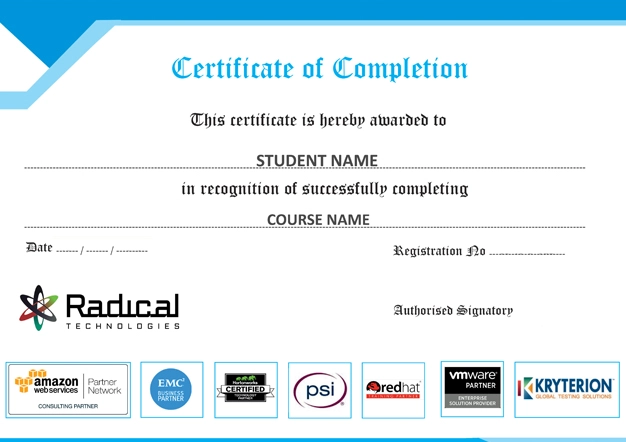


At Radical Technologies, we are committed to your success beyond the classroom. Our 100% Job Assistance program ensures that you are not only equipped with industry-relevant skills but also guided through the job placement process. With personalized resume building, interview preparation, and access to our extensive network of hiring partners, we help you take the next step confidently into your IT career. Join us and let your journey to a successful future begin with the right support.
At Radical Technologies, we ensure you’re ready to shine in any interview. Our comprehensive Interview Preparation program includes mock interviews, expert feedback, and tailored coaching sessions to build your confidence. Learn how to effectively communicate your skills, handle technical questions, and make a lasting impression on potential employers. With our guidance, you’ll walk into your interviews prepared and poised for success.
At Radical Technologies, we believe that a strong professional profile is key to standing out in the competitive IT industry. Our Profile Building services are designed to highlight your unique skills and experiences, crafting a resume and LinkedIn profile that resonate with employers. From tailored advice on showcasing your strengths to tips on optimizing your online presence, we provide the tools you need to make a lasting impression. Let us help you build a profile that opens doors to your dream career.

Infrastructure Provisioning
Implementing automated infrastructure provisioning and configuration management using Ansible. This may include setting up servers, networking devices, and other infrastructure components using playbooks and roles.

Applications Deployment
Automating the deployment and orchestration of applications across development, testing, and production environments. This could involve deploying web servers, databases. middleware, and other application components using Ansible

Continuous Integration
Integrating Ansible into CI/CD pipelines to automate software. build, test, and deployment processes. This may include automating the creation of build artifacts, running tests, and deploying applications to various environments.

The Oracle SQL course at Radical Technologies exceeded my expectations. The instructors were incredibly knowledgeable and made complex concepts easy to understand.
I enrolled in the Oracle SQL certification course online and was impressed by the interactive sessions and practical exercises. It's definitely worth the investment!
Radical Technologies helped me transition from a beginner to a proficient SQL developer. The hands-on approach and personalized attention were invaluable.
I highly recommend Radical Technologies for anyone looking to pursue Oracle SQL certification. The support provided throughout the course was exceptional.
The Oracle SQL Bootcamp was intense but incredibly rewarding. I feel confident in my SQL skills and ready to take on new challenges.
The Oracle SQL online course offered by Radical Technologies fit perfectly with my busy schedule. I appreciated the flexibility and quality of instruction.
Enrolling in the Oracle SQL course was the best decision I made for my career. I landed a job shortly after completing the certification.
The instructors at Radical Technologies are experts in their field and genuinely care about their students' success. I couldn't be happier with my experience.
I was impressed by the depth of knowledge covered in the Oracle SQL certification exam prep course. It prepared me well for the exam.
Radical Technologies goes above and beyond to ensure their students succeed. I'm grateful for the support I received throughout the Oracle SQL course.
The Oracle SQL training courses offered by Radical Technologies are comprehensive and up-to-date with industry standards. I feel confident in my skills.
I was hesitant about pursuing Oracle SQL certification, but Radical Technologies made the process seamless. I'm now certified and ready for the next step in my career.
The Oracle SQL corporate training provided by Radical Technologies was tailored to our company's needs and delivered outstanding results.
I can't thank Radical Technologies enough for helping me secure a job in database administration. The Oracle SQL training played a crucial role in my success.
The Oracle SQL course content was well-structured and easy to follow. I learned a lot and feel prepared to tackle real-world database challenges.
The instructors at Radical Technologies are not only knowledgeable but also passionate about teaching. I thoroughly enjoyed the Oracle SQL training.
Radical Technologies' Oracle SQL online courses are perfect for self-paced learners like me. The materials provided were comprehensive and informative.
I appreciate the ongoing support I received from Radical Technologies even after completing the Oracle SQL certification course. It truly sets them apart.
The Oracle SQL certification exam questions were challenging, but thanks to the training I received at Radical Technologies, I passed with flying colors.
I had zero experience with SQL before enrolling in the Oracle SQL course, but now I feel confident in my abilities. Thanks, Radical Technologies!
Radical Technologies' Oracle SQL Bootcamp was intensive but worth every moment. I gained valuable skills that have already opened doors for me.
The Oracle SQL course online allowed me to balance my studies with work and family commitments. I'm grateful for the flexibility it offered.
I was impressed by the professionalism and dedication of the instructors at Radical Technologies. They truly care about their students' success.
The Oracle SQL certification training at Radical Technologies was challenging yet rewarding. I'm proud to have earned my certification with their support.
Radical Technologies' Oracle SQL courses are top-notch. I would recommend them to anyone looking to advance their career in database management.









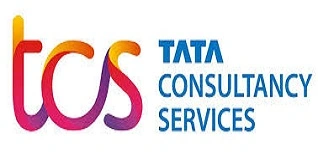




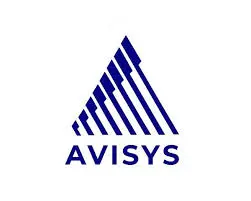
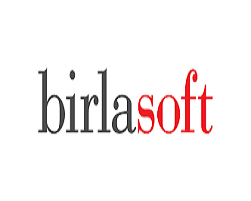




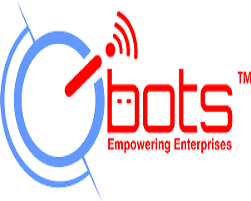
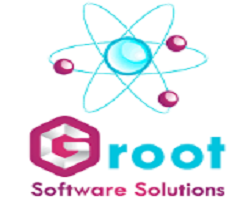



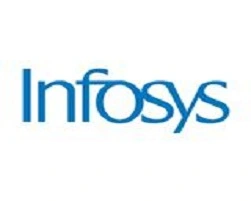
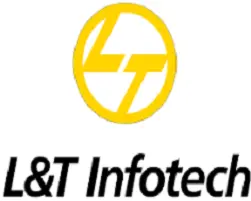
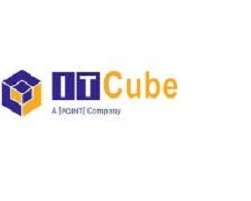

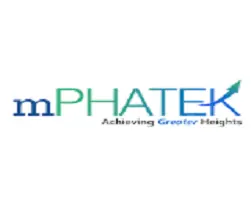
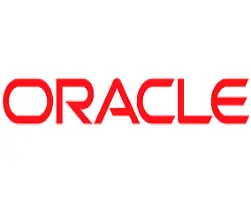








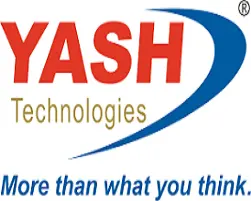

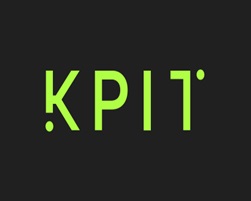

Our Oracle SQL Basics course is designed specifically for beginners to grasp fundamental concepts easily.
Absolutely! We offer comprehensive Oracle SQL training online with interactive sessions and practical exercises.
The Oracle Database Certification exam covers various topics such as SQL fundamentals, database administration, and advanced SQL queries.
Our Oracle SQL certification training course thoroughly prepares you for the exam with hands-on practice and comprehensive study materials
Yes, we provide Oracle Cloud certification courses along with Oracle SQL training for a holistic learning experience.
Yes, we provide corporate training for Oracle SQL tailored to meet the specific requirements of your organization.
Our Oracle SQL certification course covers SQL basics, advanced queries, database management, and performance optimization.
With proper training and preparation from our course, you’ll find the Oracle SQL certification exam manageable and attainable.
Yes, Oracle SQL certification exams can be taken online, and we provide guidance on how to register and prepare for the online exam.
Yes, our Oracle SQL course caters to both beginners and experienced professionals, offering advanced topics for skill enhancement.
No prior experience is required. Our Oracle SQL course is open to all individuals willing to learn.
Our Oracle SQL training emphasizes hands-on learning, real-world applications, and personalized attention to each learner.
Yes, our Oracle SQL Bootcamp is designed for intensive, fast-paced learning to help you quickly acquire essential skills.
Ambegaon Budruk | Aundh | Baner | Bavdhan Khurd | Bavdhan Budruk | Balewadi | Shivajinagar | Bibvewadi | Bhugaon | Bhukum | Dhankawadi | Dhanori | Dhayari | Erandwane | Fursungi | Ghorpadi | Hadapsar | Hingne Khurd | Karve Nagar | Kalas | Katraj | Khadki | Kharadi | Kondhwa | Koregaon Park | Kothrud | Lohagaon | Manjri | Markal | Mohammed Wadi | Mundhwa | Nanded | Parvati (Parvati Hill) | Panmala | Pashan | Pirangut | Shivane | Sus | Undri | Vishrantwadi | Vitthalwadi | Vadgaon Khurd | Vadgaon Budruk | Vadgaon Sheri | Wagholi | Wanwadi | Warje | Yerwada | Akurdi | Bhosari | Chakan | Charholi Budruk | Chikhli | Chimbali | Chinchwad | Dapodi | Dehu Road | Dighi | Dudulgaon | Hinjawadi | Kalewadi | Kasarwadi | Maan | Moshi | Phugewadi | Pimple Gurav | Pimple Nilakh | Pimple Saudagar | Pimpri | Ravet | Rahatani | Sangvi | Talawade | Tathawade | Thergaon | Wakad
I had an amazing experience with this service. The team was incredibly supportive and attentive to my needs. The quality of the work exceeded my expectations. I would highly recommend this to anyone looking for reliable and professional service."
I had an amazing experience with this service. The team was incredibly supportive and attentive to my needs. The quality of the work exceeded my expectations. I would highly recommend this to anyone looking for reliable and professional service."
I had an amazing experience with this service. The team was incredibly supportive and attentive to my needs. The quality of the work exceeded my expectations. I would highly recommend this to anyone looking for reliable and professional service."
I had an amazing experience with this service. The team was incredibly supportive and attentive to my needs. The quality of the work exceeded my expectations. I would highly recommend this to anyone looking for reliable and professional service."
I had an amazing experience with this service. The team was incredibly supportive and attentive to my needs. The quality of the work exceeded my expectations. I would highly recommend this to anyone looking for reliable and professional service."
The Oracle SQL Certification is a globally recognized credential designed for individuals seeking to deepen their knowledge and expertise in SQL (Structured Query Language) and Oracle databases. As businesses worldwide increasingly rely on data-driven decision-making, professionals skilled in SQL and database management are in high demand. This certification is an ideal step for both beginners and seasoned professionals looking to validate their skills, enhance their career prospects, and gain practical experience in managing and manipulating data within Oracle’s robust database systems.
Oracle is a market leader in database solutions, and its certifications are widely respected across industries. By earning the Oracle SQL Certification, candidates demonstrate their ability to work efficiently with Oracle databases, manage complex datasets, and write optimized queries to support business intelligence and operations. This certification not only proves your technical competence but also sets you apart as a valuable asset to organizations that leverage Oracle’s database technologies.
The Oracle SQL Certification equips learners with a comprehensive understanding of SQL fundamentals and the Oracle database environment. Key learning objectives include:
This certification is suitable for:
Upon earning the Oracle SQL Certification, you will be equipped to pursue various career paths, including:
Oracle SQL (Structured Query Language) is a powerful tool for interacting with Oracle databases, widely used across industries to manage and manipulate data. Its versatility makes it essential for various applications that range from simple data retrieval to complex transaction management. Below are key applications of Oracle SQL across different sectors and use cases.
1. Data Retrieval and Querying
One of the most common applications of Oracle SQL is data retrieval. Organizations use SQL queries to extract relevant information from large datasets stored in Oracle databases. This application is fundamental for:
Reporting and Analytics: SQL allows businesses to generate reports by selecting and aggregating data based on specific criteria. This helps in making data-driven decisions.
Data Insights: SQL queries can analyze historical data trends, helping organizations forecast future patterns and adjust strategies accordingly.
2. Database Management and Design
Oracle SQL is used to manage the structure and integrity of databases. Through SQL commands, database administrators can create, modify, and maintain the database structure by:
Creating Tables: SQL commands define the schema by creating tables, defining columns, data types, and setting constraints.
Modifying Database Schema: SQL provides the ability to alter existing database structures without disrupting data, such as adding new columns or modifying constraints.
Database Optimization: SQL helps optimize database performance by creating indexes and restructuring queries for faster execution.
3. Data Manipulation
Oracle SQL is essential for manipulating data within a database. The Data Manipulation Language (DML) in SQL allows users to:
Insert Data: Add new records to database tables.
Update Data: Modify existing records to reflect changes, such as updating product prices or customer details.
Delete Data: Remove records that are no longer relevant or needed, ensuring that databases remain clean and efficient.
4. Transaction Management
Oracle SQL plays a critical role in managing database transactions, ensuring data consistency and integrity. In multi-user environments, transaction management is crucial for handling:
Commit and Rollback: These commands help ensure that transactions are either fully completed or rolled back in case of failure, preventing partial updates that could compromise data integrity.
Concurrency Control: Oracle SQL allows multiple users to access and modify data simultaneously without conflicts, ensuring smooth database operations in real-time applications.
5. Data Security and Access Control
Maintaining data security is crucial for organizations, especially those handling sensitive information. Oracle SQL allows administrators to manage access to the database:
Granting and Revoking Permissions: SQL helps control which users can view or modify specific parts of the database. Administrators can define user roles and permissions to restrict access to confidential information.
Auditing: SQL commands can be used to audit database activity, tracking changes made to sensitive data and maintaining a record of user actions.
6. Integration with Applications
Many enterprise-level applications rely on Oracle databases for backend data management. Oracle SQL facilitates the integration of databases with these applications, enabling efficient data handling:
Application Development: SQL queries are embedded within applications to retrieve, update, or display data from Oracle databases. This is commonly used in web, mobile, and enterprise software development.
Business Intelligence (BI) Tools: Oracle SQL is integrated with BI tools like Oracle BI, Power BI, and Tableau, where it helps generate dashboards and visualizations for data-driven decision-making.
7. Big Data and Analytics
Oracle SQL is a key player in the world of big data, allowing organizations to query and manipulate massive datasets. Oracle offers SQL extensions and tools for working with big data environments like Hadoop. SQL helps:
Data Aggregation: Oracle SQL allows companies to aggregate large amounts of data from various sources, enabling comprehensive analysis and reporting.
Data Warehousing: SQL is crucial in maintaining data warehouses, which store historical data for in-depth analytics and business intelligence.
8. ETL (Extract, Transform, Load) Processes
In data migration and integration tasks, Oracle SQL plays a key role in ETL processes:
Extract: SQL queries are used to pull data from various sources.
Transform: SQL helps clean, validate, and reformat the data according to the needs of the destination system.
Load: Once transformed, SQL commands are used to load the data into the target database or data warehouse.
9. Backup and Recovery
Maintaining a backup of critical data is vital for organizations to prevent data loss. Oracle SQL helps manage database backups and recovery operations, including:
Automated Backups: Using SQL commands, administrators can automate the process of backing up database tables, ensuring that data is always recoverable.
Recovery Procedures: SQL helps initiate and control recovery processes in case of system failures or data corruption.
10. Cloud Integration
With the rise of cloud computing, Oracle SQL is increasingly used to manage databases on cloud platforms, such as Oracle Cloud Infrastructure (OCI). SQL is essential for:
Database-as-a-Service (DBaaS): SQL helps manage and query cloud-based Oracle databases, providing scalable and flexible data storage solutions.
Cloud Application Integration: SQL integrates with cloud applications, enabling seamless data exchange between cloud and on-premise systems.
11. E-Commerce and Transactional Systems
Many e-commerce platforms and transactional systems rely on Oracle SQL for managing customer data, product inventories, and transaction records. SQL enables:
Order Management: Tracking and processing customer orders through SQL-based systems that store order details, customer information, and payment status.
Inventory Management: SQL helps businesses keep track of stock levels, updating records in real-time as orders are processed and inventory is replenished.
Welcome to Radical Technologies, your premier destination for comprehensive Oracle SQL training, certifications, and career development. Located in the vibrant city of Pune, India, we pride ourselves on being a leading institute dedicated to empowering individuals with the knowledge and skills needed to excel in the ever-evolving field of database management.
At Radical Technologies, we offer a wide range of courses tailored to meet the diverse needs of learners, from beginners to experienced professionals. Whether you’re looking to kickstart your career in database administration, enhance your SQL querying skills, or pursue advanced certifications, we have the perfect program for you.
Our expert instructors bring years of industry experience and expertise to the classroom, ensuring that you receive top-notch training that is both practical and relevant. With a focus on hands-on learning, our courses provide students with real-world scenarios and projects, allowing them to apply their newfound knowledge in a simulated environment.
One of our flagship offerings is our Oracle SQL Certification course, designed to equip participants with the essential skills needed to become proficient in Oracle SQL. Covering everything from SQL fundamentals to advanced query optimization techniques, this comprehensive program prepares students to excel in Oracle SQL certification exams and succeed in demanding database environments.
In addition to Oracle SQL training, we also provide courses in Oracle Database Administration, Oracle Cloud Certification, and more. Our commitment to excellence extends beyond just classroom instruction – we offer job placement assistance to help our graduates secure rewarding positions in leading companies across India and beyond.
What sets Radical Technologies apart is our dedication to providing personalized attention and support to each and every student. Whether you prefer traditional classroom learning or the flexibility of online courses, we strive to ensure that you receive the guidance and resources needed to achieve your career goals.
Furthermore, our state-of-the-art facilities and cutting-edge technology ensure that your learning experience is both engaging and productive. With flexible scheduling options and competitive pricing, we make it easy for individuals from all walks of life to access high-quality Oracle SQL training.
Join us at Radical Technologies and take the first step towards a successful career in Oracle SQL. Explore our courses, meet our team of experts, and discover why we’re the preferred choice for database professionals in Pune and beyond.

(Our Team will call you to discuss the Fees)
